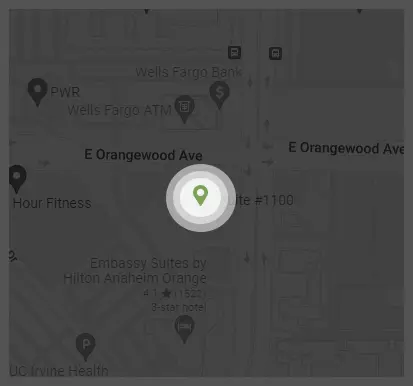Is California a No-Fault Divorce State?
California is a no-fault divorce state. This means that neither spouse is required to prove the wrongdoing of the other spouse led to the divorce. The two spouses may wish to have a divorce without the need to present the cause of the dissolution of the marriage.
There are two primary types of divorce that someone might have in California: a contested or uncontested divorce. Though similar in that both aim to end a marriage, there are critical differences between contested and uncontested divorces.
What is a Contested Divorce?
A heavily contested divorce is the most challenging type of divorce that two soon-to-be ex-spouses could go through in California. Contested divorces usually occur when two spouses cannot agree on much of anything in the divorce proceedings. And the more the couple disagrees, the more heated and difficult the divorce proceedings will likely become.
In California, a divorce may be contested for three reasons: there is a factual disagreement, a legal disagreement, or the spouses cannot settle their issues and agree on the terms of their divorce.
Divorce terms that may be contested include:
- Child custody.
- Child support.
- Parenting time schedules.
- Spousal support.
- The distribution of assets.
- What is community property and what is separate property.
- Who lives in the family home.
If you are planning to file for a contested divorce, please contact a divorce and asset protection lawyer at our law firm to discuss the unique needs of your legal case.
How to File for a Contested Divorce in California?
The process for filing for a contested divorce in California is greatly benefited by including the legal counsel of an experienced divorce attorney. With that said, the contested divorce process begins similarly to other divorce proceedings, and one spouse or the other must petition for a dissolution of marriage. Once the served spouse responds to the petition, the petition may be filed with the court.
Family law court will require that both spouses present information in the discovery process. The information provided will be used to substantiate or refute claims about the size of the estate, Community property, and other important aspects related to the divorce case.
Then, the divorce case goes to court, where both sides will present witnesses, answer the questions raised by their lawyers, and be cross-examined by the legal team of the opposing spouse. Once the trial has concluded, the family law judge will determine who gets the bulk of the assets following the contested divorce and who shall be given custody over the children. If a spouse is not satisfied with the court’s conclusions, they may seek an appeal with the help of their lawyer.
What is an Uncontested Divorce?
An uncontested divorce in California occurs when both spouses have reached an agreement about all significant issues relevant to the divorce proceedings. With no need for a courtroom appearance, an uncontested divorce skips the need for a trial, allowing for a much more streamlined and less emotionally challenging divorce process.
Additionally, an uncontested divorce can usually conclude quickly and is cheaper than a long and drawn-out contested divorce.
California has an even more simplified version of an uncontested divorce known as a summary dissolution. However, the spouses must meet certain strict criteria to qualify for a summary dissolution. These requirements include: there are no unpaid debts totaling more than $6000, neither spouse is seeking alimony, the grounds for divorce are irreconcilable differences, and neither spouse has any property other than a lease for one year or less.
What Are the Requirements for an Uncontested Divorce?
A few logistical requirements must first be met to qualify for an uncontested divorce in California.
At least one spouse must have lived as a California resident for at least six months before filing for divorce in the state.
Both spouses must mutually agree on the divorce settlement terms.
Both spouses must be willing and able to sign all the divorce paperwork.
Spouses with no children and relatively few shared assets more easily qualify for uncontested divorces in California.
Is it Possible to Switch from One Type of Divorce to Another?
If you are proceeding with an uncontested divorce but then issues arise where you cannot agree to terms, it may no longer be possible to consider your divorce uncontested. At this point, treating your divorce as contested may be necessary.
Similarly, if you begin a contested divorce case but then decide to agree to terms, reframing your divorce proceedings as an uncontested divorce may be possible. Agreements on terms can sometimes be achieved thanks to negotiation with your lawyers or mediation. If you have a court date scheduled, you may be able to cancel the courtroom appearance if your divorce case becomes uncontested.
Contact Us for an In-Depth Case Evaluation
Divorce can be a long and challenging process, one that takes up most of our emotional energy and mental processing powers. Although the law allows for spouses to divorce without the involvement of lawyers, this is not recommended in the least. In order to protect your interests in the divorce case, you are highly advised to retain professional legal counsel in the form of a knowledgeable divorce lawyer.
Our law firm has years of experience representing clients in divorce cases similar to yours. To learn about the legal services we proudly offer our clients, please contact our Law Offices to schedule your initial consultation. You may call us at (714) 701-6356.








